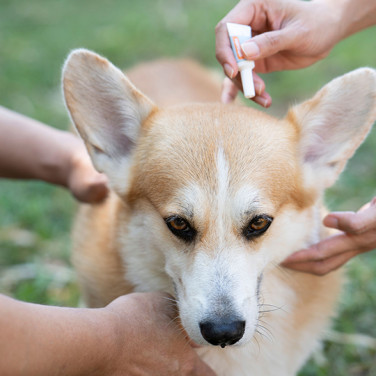FOOD
Can Dogs Eat Sesame Seeds and Sesame Oil? Benefits and Precautions
페이지 정보
본문
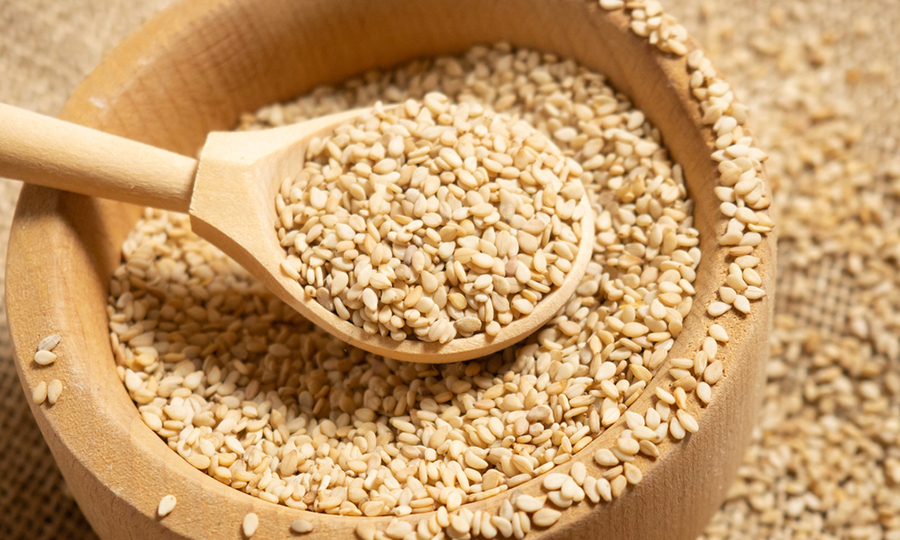
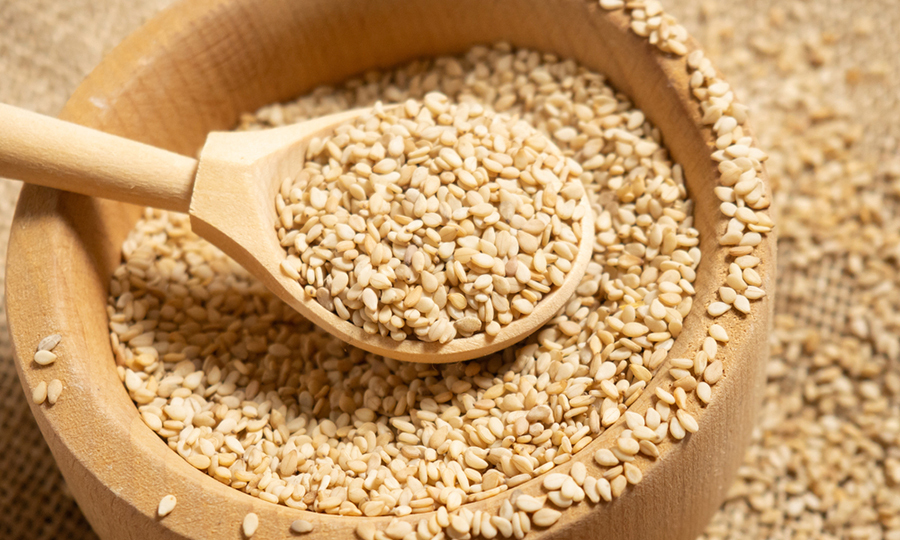
Can dogs eat sesame seeds? YES!
Sesame seeds can provide a nutritional boost in your dog’s diet, rich in fiber, antioxidants, and various minerals. Sesame can improve your dog’s diet while helping in digestion, relieving joint pain, and reducing blood cholesterol levels if fed in moderation. The high-fat and carbohydrate content can cause issues for dogs if fed in excess or for dogs with pancreatitis. We will discuss the proper feeding methods, precautions to consider, and the health benefits this seed has to offer for your furry pups.
What are the health benefits of feeding sesame to dogs?
Adding sesame seeds to your pet’s diet can provide an extra kick of healthy carbohydrates, protein, omega-6 fatty acids, and minerals such as copper, manganese, calcium, and magnesium. Sesame seeds or sesame oil can add extra nutrients and flavor to their food that their normal meal does not provide.
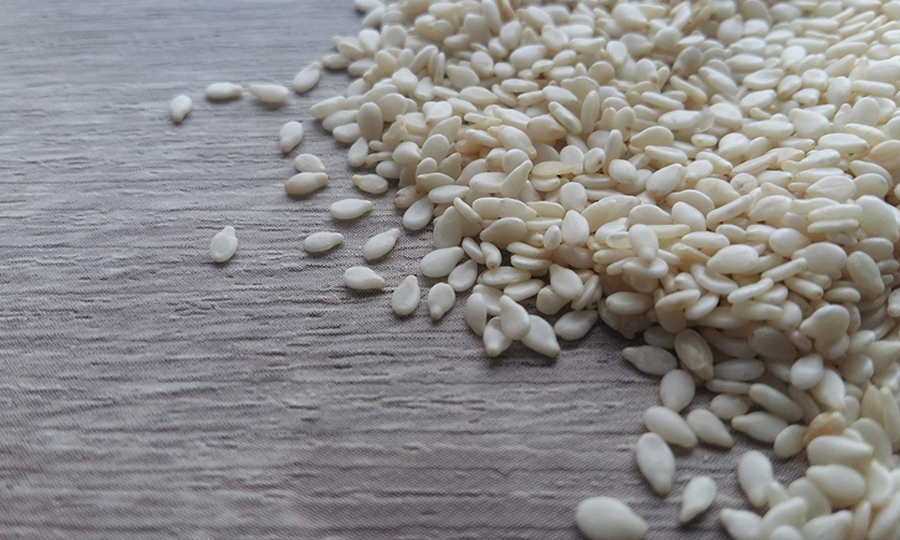
Here are some of the nutritional and health benefits of feeding sesame to your dog:
-
High in fiber
The fiber content in sesame seeds can help with constipation and facilitate digestion in dogs.
-
Antioxidants
Eating sesame seeds increases antioxidant activity in the blood which helps prevent cancer and defend against various diseases. Antioxidants in sesame seeds include lignans and vitamin E, both of which protect cells, organs, and tissues from damage caused by free radicals.
-
Cholesterol control
Sesame seeds have the highest phytosterol content of almost all plant and grain types. Phytosterols are structurally similar to cholesterol in the body. When consumed with food, it competes with cholesterol for absorption in the digestive tract, blocking cholesterol absorption and reducing blood cholesterol levels.
-
Minerals
Calcium in sesame seeds helps create strong bones and copper helps to fight against joint pain.
Precautions when feeding sesame seeds to dogs
You can avoid most of the precautions listed by feeding this seed in moderation. Following the best way to serve sesame seeds, you can learn how to offer your pet all the benefits of sesame seeds without the added caution.
Poor nutrient absorption
Dogs can absorb nutrients by chewing sesame seeds, but since the grains of sesame seeds are so small, dogs will typically swallow them right away. If sesame seeds are swallowed without chewing, they will likely pass through without the body being able to digest the nutrients in them.
High-fiber and fat content
Sesame seeds are high in fat and fiber, eating too much can cause an upset stomach, and possible symptoms include vomiting, diarrhea, anorexia, intestinal inflammation, or abdominal pain.
Oxalate
Sesame contains oxalates and is not recommended for dogs with kidney stones.
Dogs with pancreatitis
A dog's digestive system isn't used to breaking down seeds or nuts, so we recommend that you do not feed any if your dog has any known pancreas problems.
Food allergy
It is always a good habit to feed a very small amount of any new food to your dog and monitor for any signs of allergy afterward. If you notice any abnormalities, immediately stop feeding and contact your veterinarian.
Signs of an allergic reaction to look out for:
- Skin problems: hives, facial swelling, itchiness
- Digestive problems: vomiting and diarrhea
- Shortness of breath
Best way to serve sesame seeds for your dog
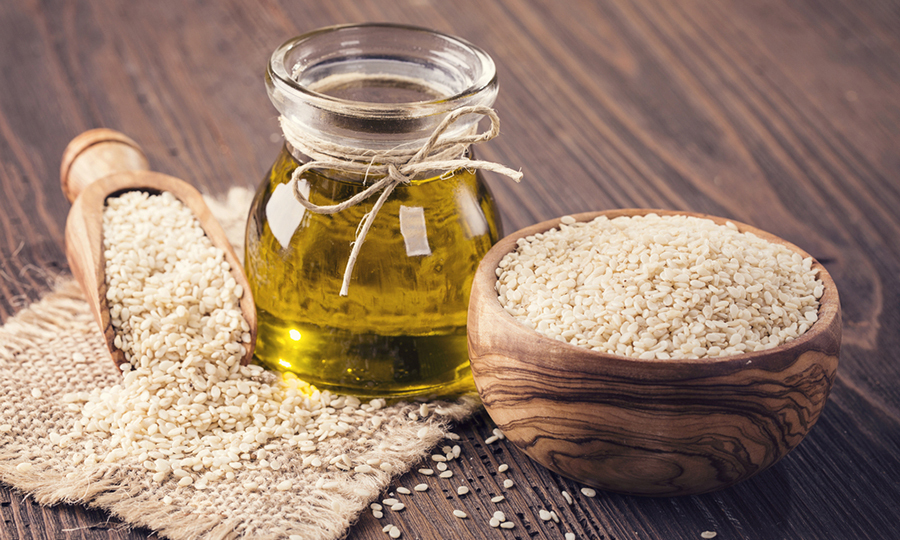
When giving sesame seeds to your dog, it is best to serve them as a meal topper garnish. The best practice is to roast sesame seeds to lower the phytic acid content found in raw sesame seeds. Lightly crush the sesame seeds to help with digestion and the absorption of their nutrients before sprinkling a little bit on each meal. Excessive consumption can cause digestive problems, so feeding no more than a teaspoon a day is recommended.
Can dogs have sesame oil?
Alternatively, dogs can enjoy the benefits of sesame seeds in oil form as well. Since sesame seeds can be more difficult for your pet to digest, sesame oil can be drizzled over their meals similar to what you would do with the seeds. It is important to consider the high-fat content in the oil and feed in moderation. Do not exceed more than a teaspoon of sesame oil a day for your dog and always consult with your veterinarian beforehand for more accurate dosage according to breed, age, and weight.
Wondering if you can feed your dog any other foods besides sesame seeds?
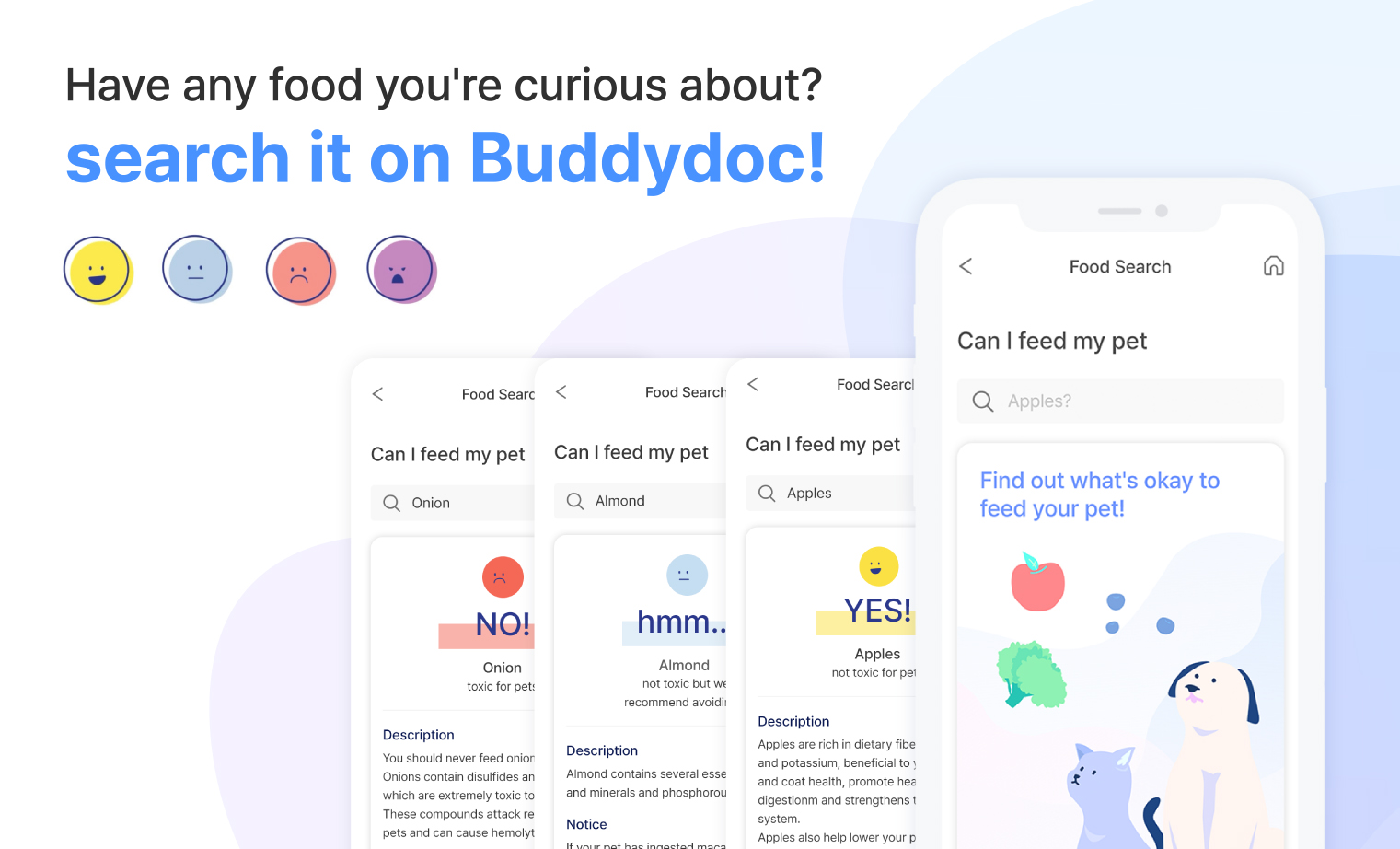
Does your dog also give you puppy dog eyes when you're snacking on something? You may know that certain foods like chocolate shouldn't be shared with them, but do you always check online to see if it's okay to give them a bite of what you're eating? The Buddydoc Food Dictionary has information on hundreds of human foods and whether they are safe and nutritious for pets. If you want to know more about other foods, try looking them up on Buddydoc!





